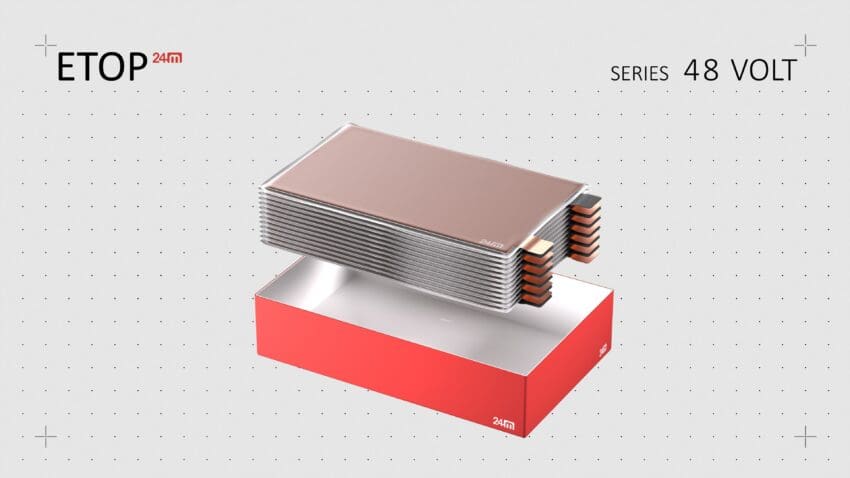
New battery tech promises 50% more range from the same sized pack
American battery specialists claim to have developed a pack that could give EVs a major range boost with no increase in battery size.
24M’s radical new ETOP (electrode-to-pack) technology significantly reduces the number of parts compared with a traditional EV battery, allowing a 50% increase in range with no change in the physical size of the pack.
The innovative system seals electrodes in thin polymer films that are integrated directly into the pack. This replaces the traditional construction method where modules and packs are built from individual cells. 24M says this traditional method results in a “large proportion” of a cell’s casing consisting of non-energy carrying materials which waste space and add cost.
The Massachusetts-based firm says that with 24M ETOP energy-carrying electrodes comprise 80% of a pack’s volume, compared with the 30% to 60% of traditional battery packs.
The system is also compatible with any current battery chemistry including the most common nickel manganese cobalt (NMC) and lithium iron phosphate (LFP) and less-common ones such as lithium-titanium-oxide (LTO) and sodium-ion.
This, says 24M, will allow car makers to offer vehicles with longer ranges by packing more energy into a same-sized pack or reduce costs for customers by using less expensive chemistries without sacrificing range.
In the example of an NMC pack, it can boost capacity from 75kWh to 100kWh, bringing a 33% increase in range with no increase in the pack size.
The technology will allow vehicle makers to customise pack shapes for different uses. Cells can be arranged in “virtually any shape”, allowing manufacturers to build packs to fit individual vehicle designs. It can also be adapted to different applications ranging from 48V batteries for hybrid systems to 800V architecture used in the most advanced EVs.
Naoki Ota, president and CEO at 24M Technologies said: “Minimising packaging materials and wasted space, 24M ETOP brings a step change in performance, maximising energy density.
“24M ETOP makes it easier to build compact, flexible and safe high voltage batteries, presenting a revolutionary opportunity for electric vehicle manufacturers – longer ranges with the same chemistry or the same range with lower cost, safer chemistries, both in the same space.”
While the ETOP system is designed to work with current lithium-ion technology, many battery and car makers are also working on solid state batteries which promise even great energy density, durability and faster charging. Recently, a Mercedes-Benz EQS fitted with a solid state battery covered 749 miles on a single charge, driving from Stuttgart to Malmo.